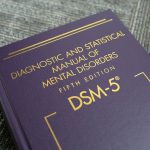Wilmington author Jacqueline Gellens Watson, who is 91, has published a book about managing her obsessive compulsive disorder (OCD) while growing up in a society that stigmatized mental disorders. Watson says her intention in publishing the book, titled The Habit, is to reassure others with OCD that attitudes about the condition have evolved and they are not alone.
Charlie Conway, the longtime director of Delaware Theatre Company’s acting troupe of adults with intellectual disabilities, will be joining the Resident Ensemble Players acting company at UD to focus on community education and outreach. Conway won The Arc’s Outstanding Achievement Award in 1994 for his work with actors with disabilities.
The U.S. Department of Labor has issued an opinion letter stating employers must grant parents and guardians time off to attend their child’s Individualized Education Program (IEP) meetings, as long as the parent or guardian is covered by the Family and Medical Leave Act (FMLA).
The American Psychiatric Association is considering altering the criteria for diagnosing intellectual disability in the widely-used Diagnostic and Statistical Manual of Mental Disorders-5 (DSM-5). Some disability advocates have expressed concern that a proposed passage linking adaptive behavior to intellect, a relationship they say is unsupported by current research, could lead to underdiagnosis of intellectual disabilities.
The 2020 Census will determine how the federal government distributes almost $900 billion to dozens of programs in the next decade. Any flaws in the count, or a lack of participation by the public, could lead to cash shortfalls for social programs that are funded based on population, including Medicaid, Section 8 housing vouchers, TANF, food stamps and Title I education grants.





